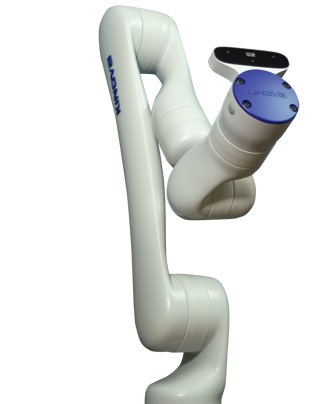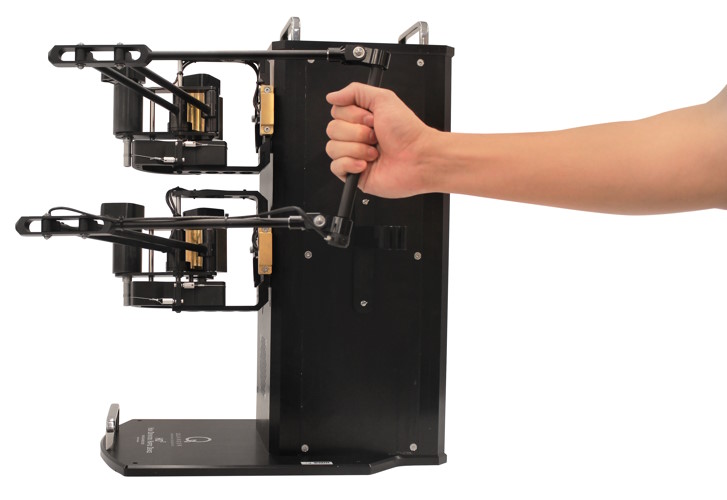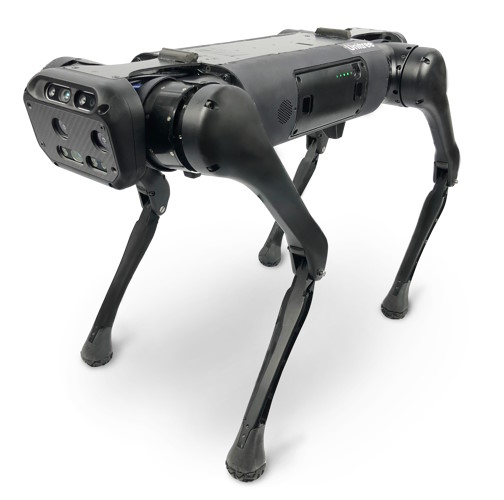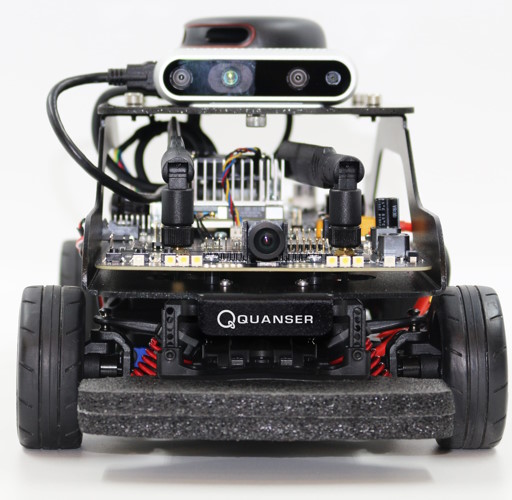AI Labs for Engineering Colleges
Reimagining Education With AI Labs
As market specialists in AI education, we excel in setting up top-notch AI laboratories for engineering colleges. Our specialised knowledge and years of experience allow us to offer tailored solutions that fit the unique needs and objectives of students of Mechatronics, Electrical, Industrial, Computer Science and Robotics engineering.
We help universities across the GCC to build advanced AI Labs at their campuses, while offering structured programmes in the fundamentals of AI, machine learning and IoT to match the requirements of the courses.
Our labs are equipped with the latest AI tools and technologies, guaranteeing students access to the most advanced resources for their projects to apply the concepts of AI, machine learning and IoT to solve complex, real-world problems, thereby preparing them for successful careers.
At EdNex, we focus on offering solutions in two key areas of intelligent systems: the way machines perceive their surroundings and their interaction with that environment.
Furthermore, we also concentrate on the interplay between these systems and human users within the ever-changing physical and social settings.
Gone are the days when robots were limited to performing predetermined actions in a predictable world. Today, robots are autonomous systems that have the ability to sense their surroundings and act to achieve specific goals. Our solutions aim to tap into this advanced capability, giving students exposure to novel and innovative approaches in the field of intelligent systems.
EdNex AI Lab Solutions
Kinova Gen3 6DOF Robot
The future belongs to Industry 4.0, so prepare your students so they can work side by side with robots. The Kinova Gen3 6DOF Robot is the perfect tool to teach the principles of robotics to students of Robotics, Electrical & Computer Science Engineering. A revolutionary robot for research and development, it can accommodate all levels of expertise with its low and high-level control options. Equipped with the ultra-lightweight Gen3 robotic arm, it empowers students to simulate, test and automate a wide range of grasping and manipulation applications. The robot is designed for efficiency and portability, allowing for easy movement between teams, projects, applications and environments with a quick setup time of less than 30 minutes.
Topics covered: Robot Vision, dynamic grasping and manipulator control, forward / inverse Kinematics, Machine learning, AI Robots


Quanser HD2 Haptic Device
The HD2 High-Definition Haptic Device is a six degrees of freedom (DOF) haptic interface for advanced research in haptics and robotics. It is also a cost-effective way to introduce advanced concepts and theories related to robotics and haptics to engineering students. With Quanser’s powerful control design environment, it offers a flexible platform for various emerging applications such as virtual medical simulators and teleoperation. As a dexterous haptic device, the HD2 enables researchers to interact with virtual or remote environments with programmable force feedback.
The heavy-duty capstan drive and high-performance motors within the device reduce the perceived inertia while maintaining rigidity of the device structure. This type of drive also makes the HD2 one of the most power haptic devices in the academic community.
Topics covered: Haptics, medical haptics & teleoperation, deep learning, mobile manipulation
Unitree Go1 Edu
Go1 Edu is a bionic quadruped mobile robot offering immense development possibilities. It’s aimed in particular at higher education, for developing applications in fields ranging from service robotics to autonomous surveillance. You can introduce this mobile robotic dog equipped with cutting-edge technology into engineering teaching environment, research or development lab.
The robot is equipped with ample external interfaces, including HDMI, Ethernet port, USB and power supply for seamless connection. This solution offers both high-level and low-level real-time APIs for secondary development, utilising two real-time operating systems: motion control through Ubuntu and environment awareness through Ubuntu-ROS. The high-level interface allows for simple control by directly sending commands such as walking speed, turning and squatting to the robot, without writing low-level control programs. The low-level interface provides direct control over the motors, including positioning, speed and torque of each motor, and supports programming languages such as C/C++ and ROS. All sensor data, including current, IMU and foot force, can also be accessed.
Topics covered: Autonomous robots, dynamic control, bioskeleton robot, advanced control, haptic vision & AI


Unitree Aliengo
The Aliengo is an excellent tool for research and teaching, which can be utilised to address real-world problems. The robot dog offers all the functionalities of a robotics platform for autonomous navigation, surveillance and exploration applications, even in hostile environments.
A multi-view depth-sensing vision system is integrated with advanced features, including high explosive athletic performance, multi-terrain adaptability, long endurance and super load capacity, as well as a rich set of external interfaces and card slots. This system features a built-in intelligent air-cooling system, providing an advanced level of protection for sensitive components. Additionally, the system is powered by a self-developed power lithium battery pack, which offers exceptional endurance and a maximum operating time of 4.5 hours. The 3-axis posture and position control enable the system to operate effectively on a variety of terrains, including rugged gravel roads and grassland.
Topics covered: Autonomous robot for industrial applications, mobile robot navigation, multiple robot coordination and cooperation, personal and service robots
Quanser Customized Studio for Self-Driving Car & Aerial Vehicles
The Quanser Self-Driving Car Research Studio provides an ideal platform for academic research in autonomous vehicles. This platform leverages cutting-edge sensor and software technologies to enable researchers to tackle complex and diverse applications, including accurate environment sensing and intelligent algorithms for autonomous driving. With the tools and components necessary for testing and validation of advanced self-driving concepts such as dataset generation, mapping, navigation, machine learning, and artificial intelligence, the studio can jump-start your research.
Topics covered: Self-driving cars, unmanned aerial vehicles, swarm control, multiple robot coordination, ground vehicle and aerial vehicle coordination, vision, deep learning

Have a Question?
Are you a school or a university aspiring to revolutionize learning for your students? Or an enterprise seeking to alter the paradigms of how you work? EdNex crafts and implements solutions that are a perfect fit for your institution.
